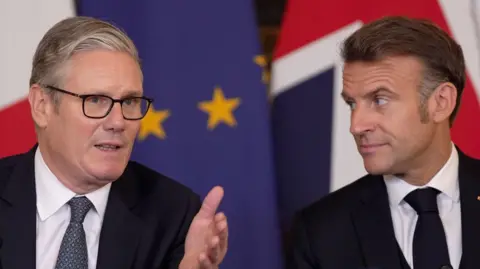The recent announcement by French President Emmanuel Macron regarding his intention to formally recognize Palestinian statehood has cast a significant spotlight on British Labour leader Sir Keir Starmer. Pressure is mounting on Starmer to respond similarly, particularly in light of calls for international acknowledgment of Palestine amidst ongoing geopolitical shifts. The decision by France is seen not merely as a symbolic gesture but rather as a substantial diplomatic maneuver, underscoring an immediate necessity for unified Western response in support of Palestinian rights.
Macron’s initiative does not break new ground in the sense of recognizing Palestine immediately; rather, he has pledged to do so at the upcoming United Nations General Assembly expected in September. Previous plans for this declaration had been delayed, influenced by international events, notably Israel and the United States’ military operations against Iran’s nuclear capabilities. This backdrop of urgency and delay adds layers of complexity to the French commitment, highlighting both the risks and the aspirations involved in such diplomatic actions.
Indeed, France hopes that its declaration will serve as a catalyst, generating a wave of momentum that might prompt other nations, including the UK, to follow suit. Macron’s fervent appeal for collaborative action came during a recent visit to the UK Parliament, where he emphasized that joint recognition efforts are essential for fostering the peace process. He noted that the partnership between Britain and France is crucial, particularly as both are permanent members of the United Nations Security Council, which lends greater weight to their joint actions.
To add to this diplomatic tension, key French diplomats are optimistic that a united front from France and the UK could facilitate broader support among other UN member states. Their rationale is that a synchronized approach from two influential states would help in restarting stalled talks and re-establishing diplomatic pathways towards peace. The historical significance of France and the UK leading this initiative brings forth discussions about the role both nations can play in reconciling the tragic fate of Palestinians against a backdrop of Israeli pushback and longstanding claims regarding statehood.
However, the response from the UK government, particularly Prime Minister Starmer, has been circumspect. Traditionally, the UK has favored a cautious approach to the recognition of a Palestinian state. Prior frameworks have emphasized avoiding what they deem “gesture politics,” fearing these recognitions might do little to shift the foundations of the ongoing conflict. Critics within parliamentary circles have voiced concerns that Macron’s initiative might be disregarded as merely a conciliatory act, lacking any substantial influence on the broader context of Israeli-Palestinian relations.
Further complicating the narrative is Britain’s existing diplomatic strategies, which prioritize tangible negotiations over symbolic gestures. Officials in the UK maintain that statehood recognition should form part of a more comprehensive political settlement, advocating for recognition only after significant strides have been made towards peace. Prime Minister Starmer has publicly stated that for recognition to take place, foundational steps towards a ceasefire must first occur, establishing a condition for recognition linked to concrete diplomatic progress.
In the UK Parliament, calls for recognition of Palestine have intensified, with activists and MPs pressing the government to take meaningful steps before losing credibility in the eyes of their constituents. The Foreign Secretary, David Lammy, reiterated that recognition must be contextualized within a broader peace strategy, one that safeguards both Palestinian rights and Israeli security.
As the situation unfolds, political analysts are acutely aware that the dynamics within Parliament could shift decisively in favor of recognition. Increased advocacy from MPs and influential figures, such as Health Secretary Wes Streeting, underscores the mounting internal pressure on the UK government. Should the government choose not to align with Macron’s principles on recognition, it risks facing significant parliamentary discord and possibly a revolt among Labour backbenchers.
Therefore, all eyes remain fixed on how the British government will respond. By failing to engage substantially with France’s lead, the UK risks international isolation or being drawn into a nominal recognition without strategic advantage. Moreover, with more than 140 countries having already recognized Palestine, the ramifications of diplomatic recognition remain to be seen, especially in relation to the immediate improvements for those living under the dire conditions in Gaza. Ultimately, the upcoming months will illustrate not only the UK’s foreign policy trajectory but also the broader shifts in international support for Palestinian statehood.











